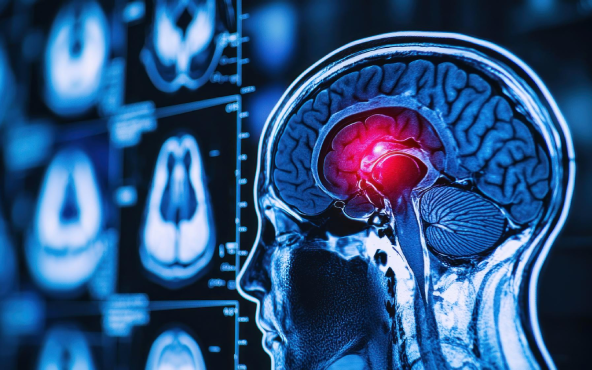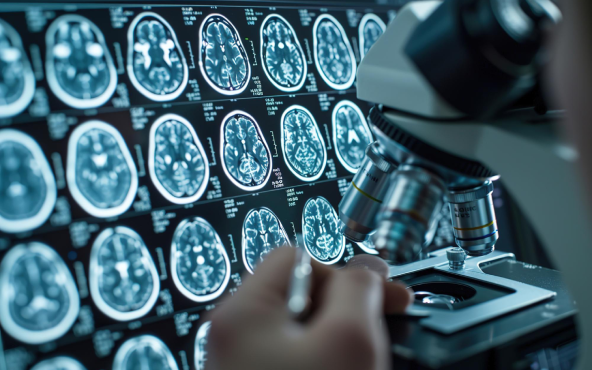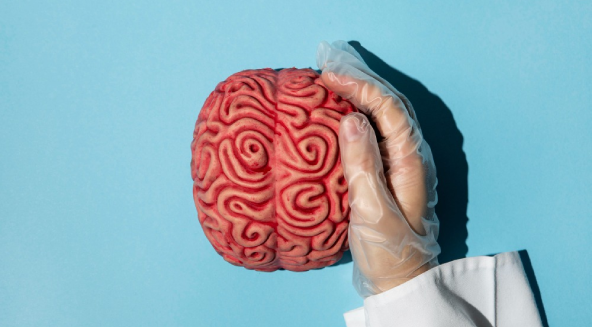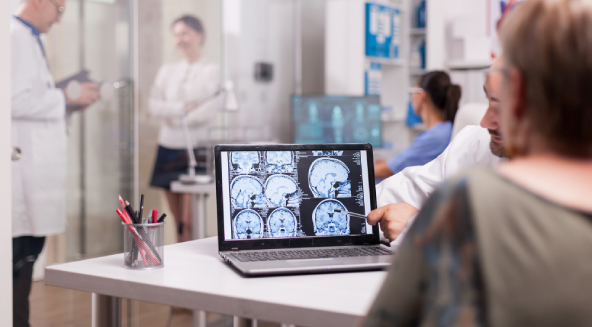What is Neurology?
Neurology deals with a variety of neurological disorders, focusing on the brain, spinal cord, nerve fibers, and neuromuscular junctions.
Neurology is a medical field that deals with diagnosing and treating problems with the nervous system, including the brain, spinal cord, and nerves. It covers many conditions, from common issues like migraines to more complex ones like epilepsy and multiple sclerosis. Learning about neurology helps people notice symptoms early and get the right care.
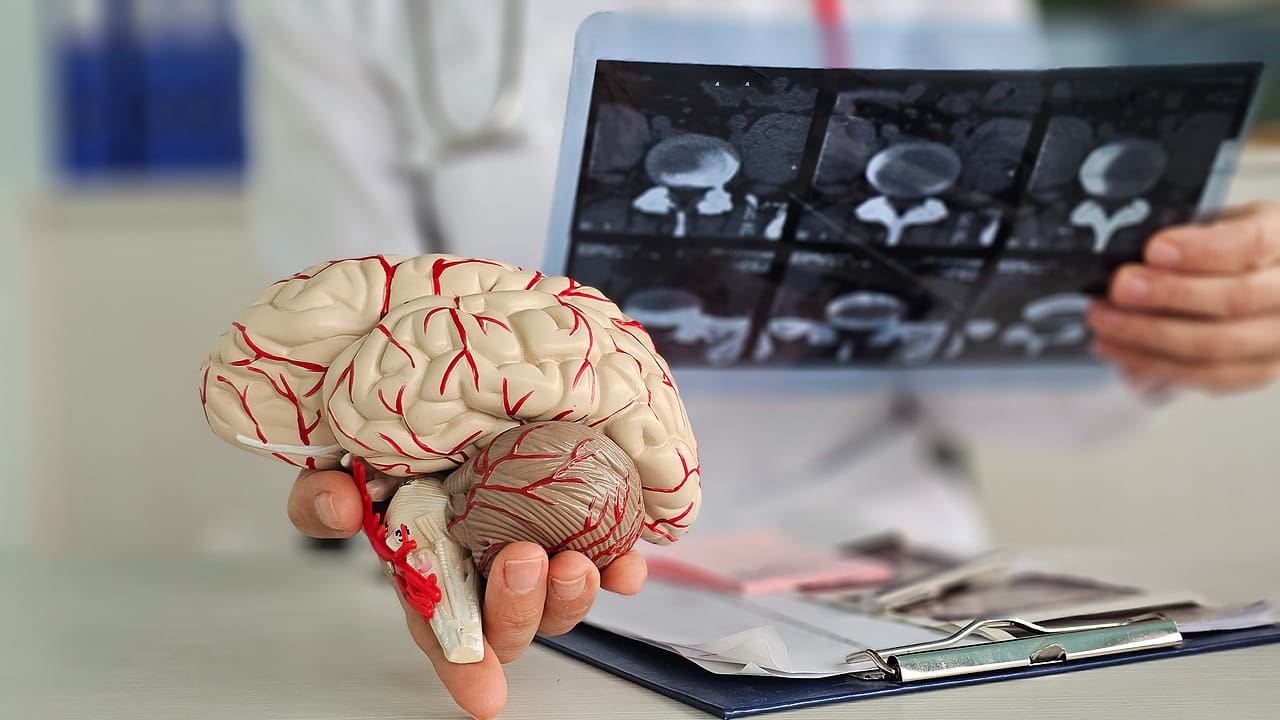
Which Diseases Does Neurology Treat?
Headache is a common neurological disorder in the society. Treatment of migraine, tension type headache, cluster headache and other headaches; the most appropriate option is determined by considering the patient's age, other diseases and medications. Botulinum toxin injection and nerve blockage, which is an alternative treatment for migraine patients resistant to conventional treatment, are also applied in our clinic.
Vertigo (dizziness), which is especially common in adulthood, can be seen due to many different systemic and neurological diseases. Evaluation and differentiation of diseases and conditions that cause vertigo, performing advanced laboratory and imaging studies in this regard, and determining the most appropriate treatment option with a multidisciplinary approach when necessary are among the main areas of duty.
Among the so-called extra pyramidal diseases; essential tremor, chorea and dystonia, especially Parkinson's Disease, are treated. In addition to oral medication in these diseases, device assisted treatment for Parkinson's disease and botulinum toxin treatment for dystonia are also performed when appropriate and necessary. Evaluation is also performed for deep brain stimulation, which is included in the treatment of Parkinson's disease and dystonia, but appropriate indication and appropriate timing are very important.
It is very important to diagnose multiple sclerosis, which is common in adults, and to determine the appropriate treatment and follow up according to the stages. In our department, our patients are followed up with a multidisciplinary approach based on current diagnostic and therapeutic algorithms and by providing the necessary solutions not only for neurological but also for the problems they encounter in their daily lives.
Differential diagnosis and treatment of acute and chronic inflammation, rheumatic and nutritional diseases of the spinal cord are performed. Paraneoplastic syndrome, which can develop before cancer, is one of the areas of study evaluated, diagnosed and followed up in our clinic.
Common Symptoms of Neurological Conditions
People with neurological conditions can have many different symptoms, depending on the disorder. Some common symptoms are:
Headaches: Frequent or severe headaches can indicate underlying neurological issues.
Seizures: Sudden, uncontrolled electrical disturbances in the brain.
Numbness or Tingling: Abnormal sensations often associated with nerve damage.
Weakness: Loss of strength in limbs or other body parts.
Cognitive Changes: Memory loss, confusion, or difficulty concentrating.
If you or someone you know has these symptoms, it’s important to see a healthcare professional for a full check up.
Functional Neurological Disorders Explained
Functional neurological disorders (FND) are conditions where patieFunctional neurological disorders (FND) cause neurological symptoms, but doctors cannot find a clear medical or neurological reason for them. Symptoms can include: FND can greatly affect daily life, so it’s important for patients and families to understand the condition. Treatment usually includes physical therapy, mental health support, and changes to daily habits.
Pediatric Neurology: Caring for Children’s Brain Health

Pediatric neurology focuses on finding and treating neurological problems in children. This area covers conditions such as:
- Seizure disorders
- Cerebral palsy
- Developmental delays
Pediatric neurologists work closely with families Pediatric neurologists team up with families to make sure each child gets care that fits their needs.
The Importance of Neurological Exams
Neurological exams are important for finding and treating neurological problems. During the exam, a neurologist checks different functions, such as:
- Motor skills: Evaluating strength and coordination.
- Sensory function: Testing the ability to feel touch, pain, and temperature.
- Reflexes: Checking how quickly and effectively your body responds to stimuli.
- Cognitive function: Assessing memory, attention, and problem solving abilities.
These tests help neurologists figure out what’s causing the symptoms and plan the best treatment.
Neurological Rehabilitation: Pathway to Recovery
Neurological rehabilitation is a type of therapy that helps people recover after neurological injuries or illnesses. It can include:
Physical Therapy: To improve mobility and strength.
Occupational Therapy: To enhance daily living skills.
Speech Therapy: To address communication and swallowing difficulties.
Rehabilitation is key for helping people become more independent and improve their lives after events like strokes or brain injuries.
Treatments for Neurological Disorders
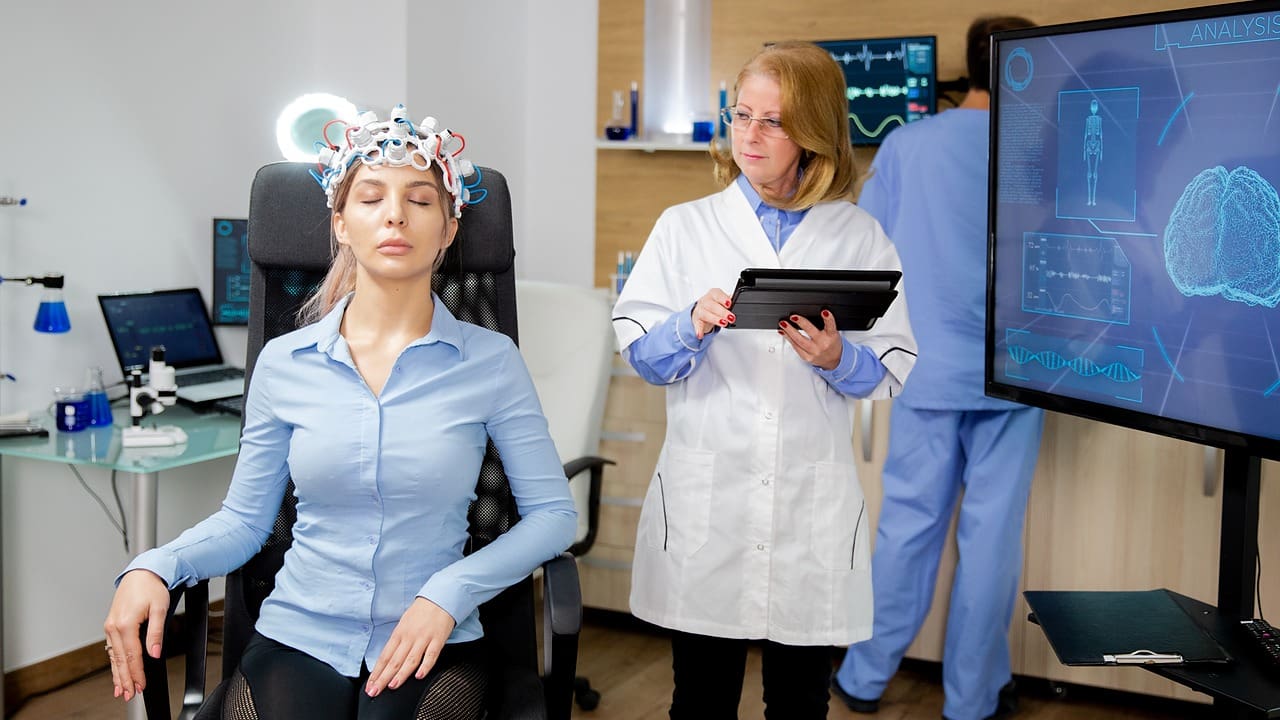
New developments in neurology have brought about fresh treatment options for different neurological disorders. Some of these are:
Medications: Targeted therapies to manage symptoms and slow disease progression.
Surgical Interventions: Procedures to address structural issues in the brain or spine.
Neuromodulation: Techniques such as deep brain stimulation for conditions like Parkinson’s disease.
Learning about new treatments helps patients talk with their doctors about what might work best for them.
Liv Hospital Neurology Department
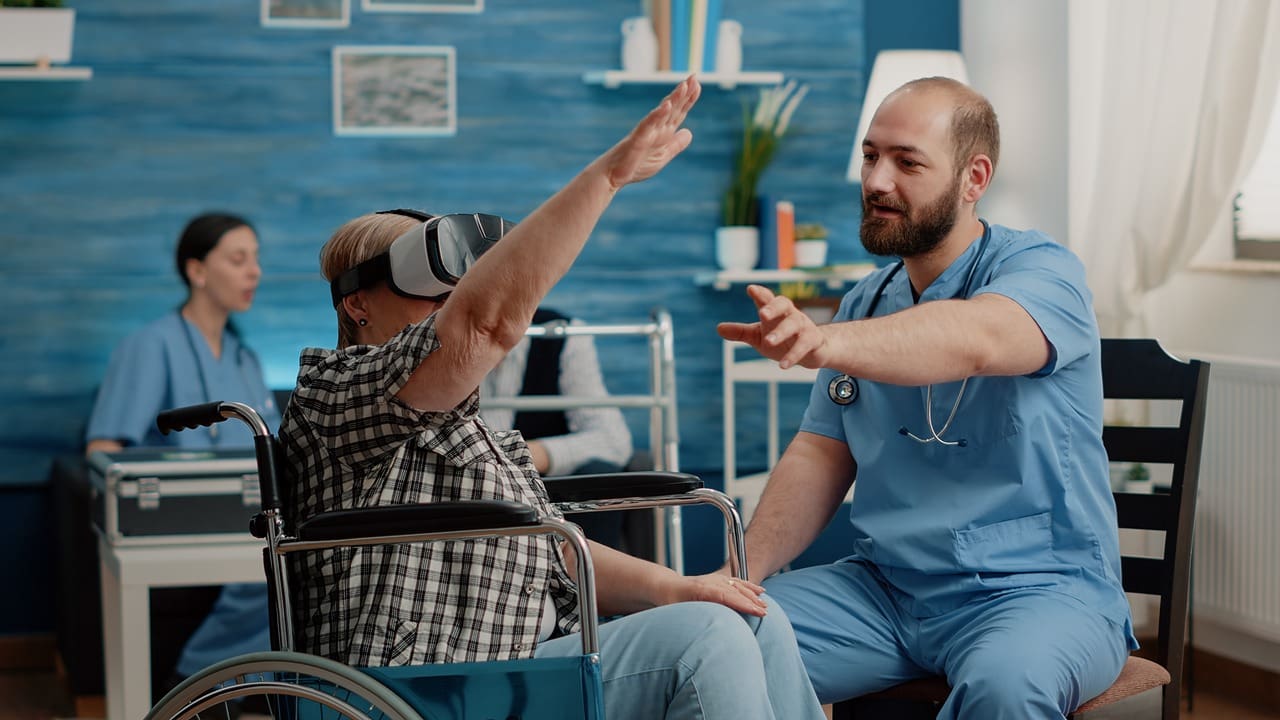
Scientific publications, congresses and educational meetings are closely followed in our clinic. In 2021, our studies were presented at three congresses and meetings. Neurological diseases are one of the departments where long term follow up should be done carefully and meticulously as well as diagnosis. We provide all kinds of support to our patients in this process successfully and sincerely. Liv Hospital Neurology Department diagnoses and treats acute and chronic diseases of the brain, spinal cord and peripheral nerves, which are the parts of the nerves after they exit the spinal cord.
Diagnosis Opportunities
- Extensive Biochemical and Hormonal and Nutritional Tests
- Antibody Studies in Cancer Related Neurological Involvement
- Genetic Studies in Genetic Neurodegenerative Diseases
- Nerve Conduction Studies
- Muscle Review
- Evoked Potentials (Vep, Sep, Baep)
- Radiological Examinations
- Sleep Laboratory (Polysomnography)
Fields of Interest
- Headaches
- Vertigo
- Cerebrovascular Diseases
- Epilepsy
- Multiple Sclerosis
- Parkinson's and Other Movement Disorders
- Alzheimer's Disease
- Balance Disorders
- Polyneuropathies
- Muscle Diseases
- Myasthenia Gravis
For more information about our academic and training initiatives, visit Liv Hospital Academy.
Frequently Asked Questions for Neurology
What causes sudden neurological issues in pets?
Sudden neurological issues in pets can be caused by various factors, including trauma, infections, toxins, or underlying health conditions. If your pet exhibits sudden changes in behavior or physical abilities, it is crucial to seek veterinary care immediately.
What is a neurological evaluation?
A neurological evaluation is a comprehensive assessment performed by a neurologist to diagnose neurological conditions. It typically includes a detailed medical history, physical examination, and various diagnostic tests such as imaging studies or nerve conduction tests.
Is autism a neurological disorder?
Yes, autism spectrum disorder (ASD) is considered a neurological disorder. It affects social interaction, communication, and behavior, and its symptoms can vary widely among individuals.
What is vascular neurology?
Vascular neurology is a subspecialty of neurology that focuses on the diagnosis and treatment of cerebrovascular diseases, such as strokes and transient ischemic attacks (TIAs). Vascular neurologists work to prevent and manage conditions that affect blood flow to the brain.
Is multiple sclerosis a neurological disease?
Yes, multiple sclerosis (MS) is a neurological disease that affects the central nervous system. It occurs when the immune system mistakenly attacks the protective covering of nerve fibers, leading to communication problems between the brain and the rest of the body.
Can migraines be classified as a neurological disorder?
Yes, migraines are classified as a neurological disorder. They are characterized by recurrent headaches that can cause significant pain and may be accompanied by nausea, vomiting, and sensitivity to light and sound.
What is functional neurological disorder?
Functional neurological disorder (FND) is a condition where patients experience neurological symptoms that cannot be explained by traditional neurological diseases. Symptoms may include weakness, movement disorders, and sensory disturbances, and treatment often involves a multidisciplinary approach.
What is a neurological exam?
A neurological exam is a series of tests conducted by a neurologist to assess the functioning of the nervous system. It includes evaluations of motor skills, sensory perception, reflexes, and cognitive abilities to help diagnose neurological disorders.



















